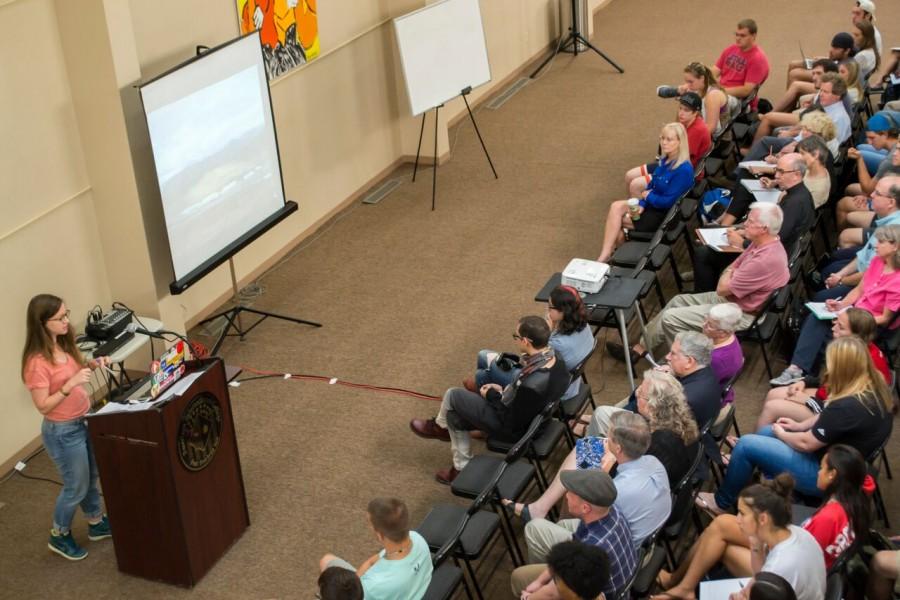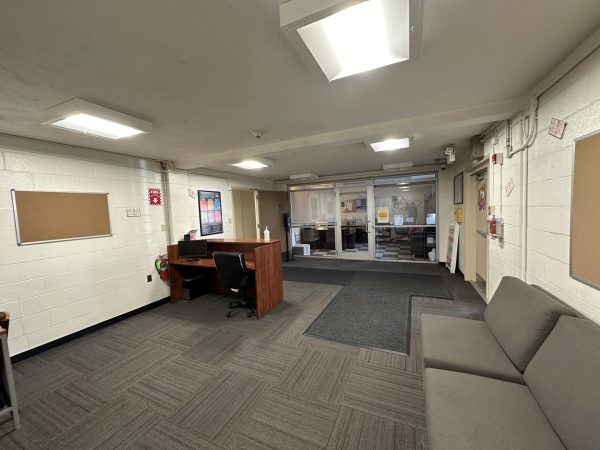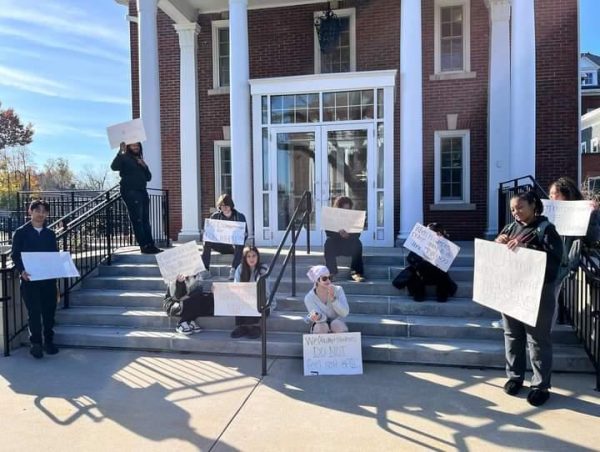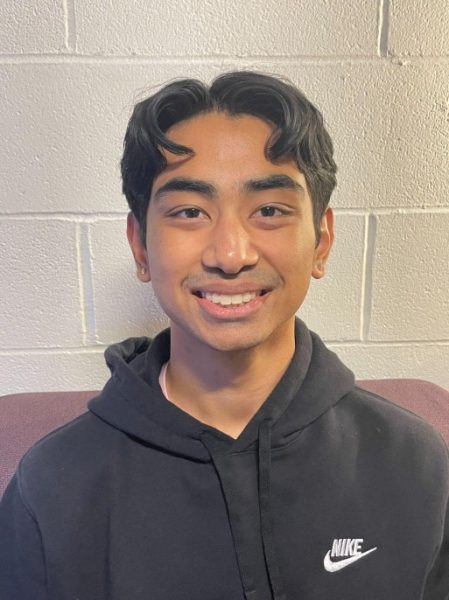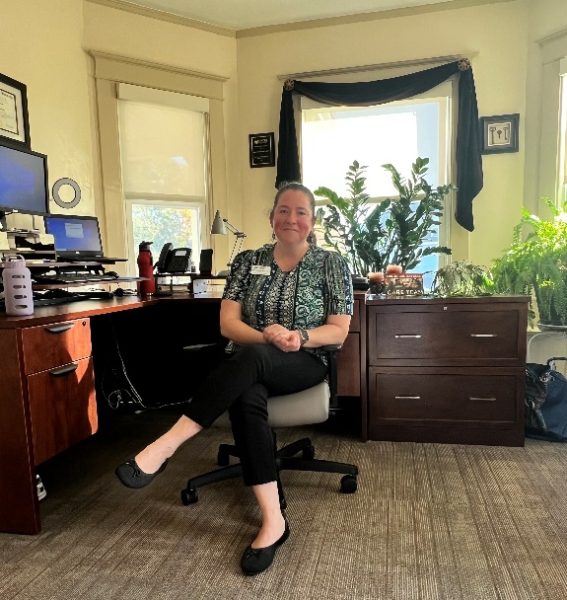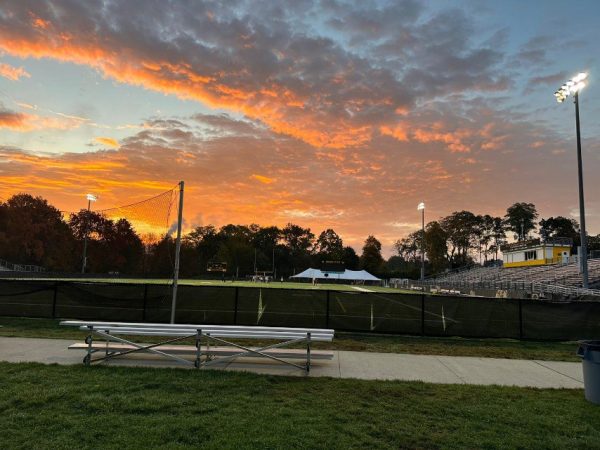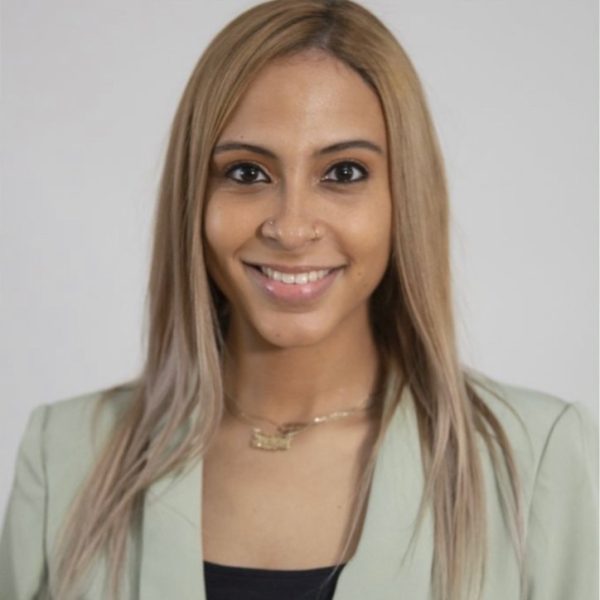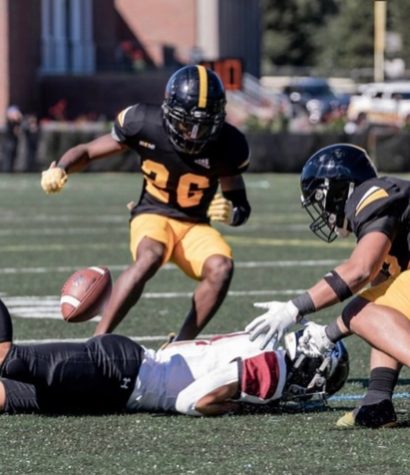AIC Welcomes Library Freedom Activist Alison Macrina on Constitution and Freedom Day
September 30, 2015
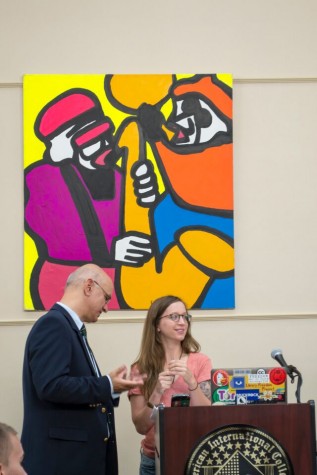
Alison Macrina, founder of Library Freedom Project, was focused on government electronic surveillance at American International College as a guest speaker for Constitution and Freedom Day.
Macrina briefly introduced herself, then offered the audience to come and take stickers, including one to cover computers and laptop cameras to keep electronic intruders out. She used this as her entryway to begin her presentation that would leave the audience in extended thoughts.
Macrina is associated with the Library Freedom Project. People think of a lady behind an old wooden desk when they hear librarian, but this is almost the opposite of what Macrina represents. She is an activist of privacy and basic human rights.
She is a firm believer that, as she said, “every human should have a right to research, read, and writer freely.”
Her views were a perfect fit for a day labeled Constitution and Freedom Day.
If anyone in the room felt concerned with FBI spying on citizens, this was definitely the presentation to be at. Macrina hopped right into her presentation, but then began to take a few step back. She explained how her concern with library freedom came about in the summer of 2013 when Edward Snowden documents began leaking out. These files include a number of surveillance on citizen in the U.S. conducted by agencies such as the National Security Agency, also known as the NSA.
This may not seem out of the ordinary for the times our country has been through, but Macrina made sure the audience saw the importance. She explained that most of the surveillance is on minority groups such as blacks and Muslims in their own communities.
This is where some of the controversy comes into play.
Macrina brought up the incident when a Muslim man was arrested and investigated for search information on bombs. Not too long into her telling the story, an audience member raised his hand.
“Anyone searching information like that should be prosecuted and taking into custody,” the audience member noted.
There was tension in the air and the elephant in the room began to make its appearance. This was far from an easy presentation to make on the right of privacy, but Macrina continued to make her point.
“That is where you are wrong. That is a clear violation of our constitutional rights,” Macrina retaliated. “You have the right to research, read and write anything you wish without being harassed.”
Moving along, Macrina decided to take it to another level of controversy.
When the so-called ‘War on Drugs and Terrorism’ is mentioned as a form of discussion it is expected to be a room full of opinions. Macrina not once shied away from mentioning the motive behind her presentation and why it held such importance to everyone’s life today. Throughout her presentation she constantly reminded the audience that their two groups within our society that suffer the most from this surveillance.
From the Regan era of War on Drugs to the Bush era with the War on Terrorism, “the targets haven’t changed but the capabilities have expanded,” Macrina said.
If there were any true conclusions to be drawn on this presentation, it would be very simple: in the times we live in with the technology we have, you are never truly sure who can be watching.
AIC student Cassondra Calhoun said the discussion was lively and made her think.
“It made me second guess every piece of technology I use,” Calhoun said. “I have no hard facts that it has been done to me but I know the U.S. government is capable of almost anything.”
Many can agree with Calhoun’s thoughts that surveillance spying may have never been done directly to them, but you know it could happen.



